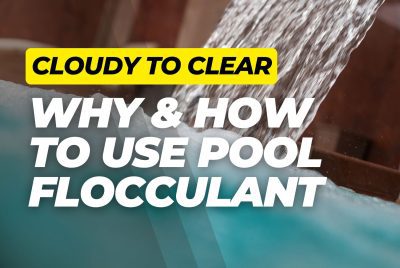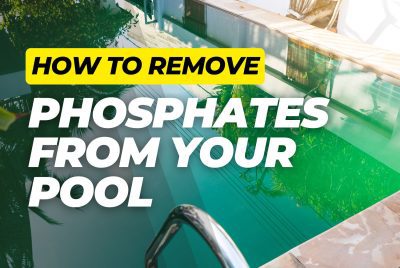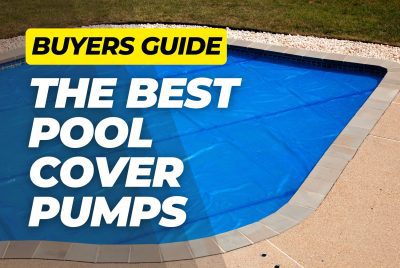Pool Heat Pump Guide: Everything You Need to Know
Whether you’re jumping into your pool first thing in the morning or winding down after a long day, no one wants to swim in chilly water. A pool heat pump is a powerful, energy-efficient way to keep your water warm and inviting – without torching your wallet.
In this complete guide, we’ll explain how pool heat pumps work, how they compare to other pool heaters, and what you should know before buying one. We’ll also cover repair tips, cost breakdowns, and the best options for above ground pools. So, let’s dive in (preferably into warm water)!
What Is a Pool Heat Pump?
A pool heat pump is a device that uses electricity to pull warmth from the air and transfer it into your pool water. Unlike traditional pool heaters that burn fuel, heat pumps are more energy-efficient because they don’t actually generate heat – they just move it.
Why It’s Called a “Pump”
Think of it like a reverse refrigerator. While your fridge pulls heat out of the inside and dumps it into your kitchen, a heat pump grabs heat from the outside air and sends it into your swimming pool.
If you’re curious about the other ways of heating your pool, check out this article.
How Does a Pool Heat Pump Work?
It may sound a bit like magic, but there’s solid science behind it.
Step-by-Step Breakdown:
- Air intake: A fan pulls in warm outside air.
- Compression: The air passes over an evaporator coil filled with liquid refrigerant. The refrigerant absorbs the heat and turns into a gas.
- Heat exchange: This warm gas moves through a compressor, which increases its temperature.
- Pool water heating: The hot gas flows through a heat exchanger, warming the pool water as it circulates.
- Cycle complete: The refrigerant cools, turns back into a liquid, and the process repeats.
In short? It’s a continuous cycle of borrowing heat from the air and giving it to your pool.
Pool Heat Pump vs Pool Heater: What’s the Difference?
Choosing between a pool heat pump and a more traditional pool heater can be tricky.
Here’s how they stack up:
| Feature | Pool Heat Pump | Pool Heater (Gas) |
| Efficiency | Very high (up to 5x more) | Moderate |
| Speed | Slower to heat water | Heats water quickly |
| Cost to Run | Low | High |
| Initial Cost | Higher | Lower |
| Lifespan | 10–20 years | 5–10 years |
| Best For | Regular use, warmer climates | Occasional use, cold snaps |
Bottom line: If you live in a warmer region and use your pool often, a heat pump is your budget-friendly best friend. If you only swim occasionally or need fast heat, a gas heater might work better.
Benefits of Using a Pool Heat Pump
Still wondering why heat pumps are gaining popularity? Here’s what makes them a hot (pun intended) option:
- Energy efficiency: They use less electricity than electric resistance heaters.
- Long-term savings: Lower monthly bills can offset the higher upfront cost.
- Eco-friendly: No emissions, and they don’t burn fossil fuels.
- Quiet operation: Most units hum softly in the background.
Above Ground Pool Heat Pumps: Are They Worth It?
Absolutely. Above ground pools might not be permanent, but your comfort shouldn’t be temporary.
Key Features to Look For:
- Compact design: Smaller units that still pack a punch.
- Voltage options: 110V and 220V models depending on your power setup.
- Weather-resistant housing: Especially important if your unit sits outside year-round.
- Built-in timers or Wi-Fi controls: Set it and forget it.
While not all heat pumps are made for above ground pools, many manufacturers now offer specialized models that are easy to install and surprisingly affordable.
To discover which above ground pools are compatible with heat pumps, see our above ground pool guide!
Pool Heat Pump Cost: What Should You Expect?
Let’s talk numbers.
Initial Purchase Price:
- Standard in-ground pool heat pump: $2,000 to $5,000
- Above ground pool heat pump: $800 to $2,000
Installation:
- Professional installation: $500 to $1,500 depending on complexity
- DIY-friendly models: Some plug-and-play options available for above ground setups
Monthly Operating Cost:
- Around $50 to $150, depending on usage, size, and climate
Remember: while the upfront price tag might make your wallet sweat, the long-term savings on energy bills often make up for it within a few seasons.

Choosing the Right Pool Heat Pump
There’s no one-size-fits-all answer. Your ideal heat pump depends on several factors.
Consider the Following:
- Pool size: Bigger pools need more BTUs (British Thermal Units).
- Climate: Heat pumps work best in air temperatures above 50°F.
- Desired water temp: Want it warm or bathwater hot?
- Budget: Consider long-term savings vs upfront cost.
BTU Rule of Thumb:
- For every 10,000 gallons, aim for 50,000 BTUs.
- So, a 20,000-gallon pool? You’re looking at a 100,000 BTU unit.
Pool Heat Pump Maintenance: Keep It Running Smoothly
Thankfully, maintaining a pool heat pump isn’t a full-time job.
Basic Maintenance Tips:
- Clean the air filters regularly.
- Check the evaporator coil for leaves and debris.
- Inspect the fan and motor for any odd noises.
- Winterize your unit in colder months to prevent freezing. A pool heat pump cover can protect your system from snow, debris, and rain during the off-season.
For more on winterizing your pool, check out this article!
Pool Heat Pump Repair: Common Issues and Fixes
Even the best machines hiccup sometimes. Here are some common problems and what they might mean.
Trouble Signs:
- Not heating: Could be a low refrigerant level or clogged filter.
- Strange noises: Might signal fan issues or loose parts.
- Leaks: Condensation is normal—puddles, not so much.
What to Do:
- Check your filter and water flow – low flow = low efficiency.
- Inspect the thermostat – make sure it’s set correctly.
- Call a pro if the issue persists or you hear grinding/knocking sounds.
Pro tip: Keep your user manual handy. It often has troubleshooting steps built right in.
Electric Heat Pump vs Gas Heater vs Solar: Which Wins?
Let’s break it down:
Electric Heat Pump
- Efficient, long-lasting, low operational cost.
- Best in warmer regions with consistent temperatures.
Gas Heater
- Powerful and fast.
- Great for colder climates or on-demand heating.
Solar Pool Heater
- Eco-friendly and cost-effective.
- Depends heavily on sunlight and available roof space.
If you’re in a sunny, mild climate and want year-round swimming, a swimming pool heat pump or solar combo might be the dream team. You can find some great solar pool heaters here.
Do You Really Need a Pool Heat Pump?
That depends on how often you swim, your climate, and your patience for cold water.
It’s Worth It If:
- You swim early mornings or late in the season.
- You want to extend your swim season without draining your bank account.
- You like your pool at a comfy, stable temperature all day, every day.
Still on the fence? Picture this: it’s a crisp fall morning, steam rising gently off your pool, and you’re floating in warm, toasty water. That’s the heat pump difference.
Final Splash: Key Takeaways
Here’s what we’ve covered:
- A pool heat pump is a super-efficient way to heat your pool using ambient air.
- It’s more eco-friendly and cost-effective in the long run compared to gas heaters.
- Installation and operating costs vary, but most users see big energy savings.
- They’re great for both in-ground and above ground pools.
- With basic maintenance, they’ll keep your pool cozy for a decade or more.
The bottom line? A pool heat pump is a smart investment if you love warm swims without the heatwave on your energy bill.
So go ahead – give your pool the warm hug it deserves. You’ll wonder how you ever swam without it.

The Villastar Pool Heat Pump comes in 2 sizes, the smaller perfect for an above ground pool!
FAQs – Frequently Asked Questions
Most pool heat pumps lose efficiency below 50°F, but some cold-climate models are designed to operate effectively in cooler temperatures using enhanced compressors and defrost systems.
Heating a pool can take 24 to 72 hours depending on pool size, outside temperature, and pump capacity. Using a solar pool cover helps speed things up by reducing heat loss.
No, once your pool reaches the set temperature, the heat pump cycles on and off as needed. This maintains warmth efficiently without running constantly, especially if a pool cover is used.
Yes, most heat pumps work well with saltwater pools. Look for models with titanium heat exchangers and corrosion-resistant parts to ensure long-lasting performance and minimal wear.
Yes, some compact, plug-and-play heat pumps are designed for temporary or inflatable pools. They’re easy to install, energy-efficient, and perfect for smaller setups during the swimming season.




